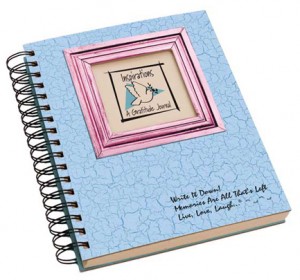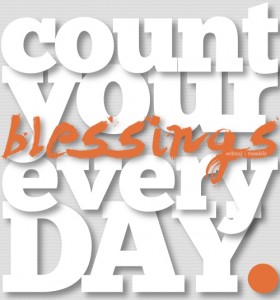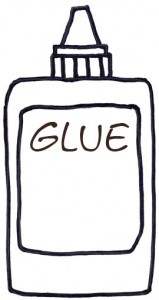Make A Gratitude Adjustment
Feeling thankful is one key to happiness, so count your blessings for a boost.
As a child, Chris Peterson absolutely hated writing thank-you notes. His aversion continued right into his 40s, until one day he knew he had to face it.
A psychology professor at the University of Michigan, Peterson regularly gave his students an unusual homework assignment. He asked them to write a “gratitude letter,” a kind of belated thank-you note to someone in their lives. Studies show such letters provide long-lasting mood boosts to the writers. Indeed, after the exercise, Peterson says his students feel happier “100 percent of the time.”
But what Peterson didn’t tell his students was that he couldn’t bring himself to write his own letters. “I just thought it would be corny to do,” he remembers.
When he finally forced himself to put pen to paper, Peterson avoided embarrassing sentiments by “cloaking it all in humor.” His thanks wound up feeling insincere and didn’t cheer him. When he tried again, he says, “I spoke from the heart.”
Gratitude is a sentiment we’d all do well to cultivate, according to positive psychologists, mental health clinicians and researchers who seek to help everyone create more joy in life. Feeling thankful and expressing that thanks makes you happier and heartier—not hokier.
The biggest bonuses come from experiencing gratitude habitually, but natural ingrates needn’t despair. Simple exercises can give even skeptics a short-term mood boost, and “once you get started, you find more and more things to be grateful for,” says Robert Emmons, a leading gratitude researcher at the University of California at Davis.
In gratitude letters like those penned by Peterson and his students, writers detail the kindnesses of someone they’ve never properly thanked. Read this letter aloud to the person you’re thanking, Peterson says, and you’ll see measurable improvements in your mood. Studies show that for a full month after a “gratitude visit” (in which a person makes an appointment to read the letter to the recipient), happiness levels tend to go up, while boredom and other negative feelings go down. In fact, the gratitude visit is more effective than any other exercise in positive psychology.
Your Happiness List
Gratitude needn’t be directed at another person to hit its mark. Take just a few minutes each day to jot down things that make you thankful, from the generosity of friends to the food on your table or the right to vote. After a few weeks, people who follow this routine “feel better about themselves, have more energy and feel more alert,” Emmons says. Feeling thankful even brings physical changes, studies show. List-keepers sleep better, exercise more and gain a general contentment that may counteract stress and contribute to overall health.
Gratitude exercises do call for a certain amount of openness. Emmons remembers one woman who wrote the same gratitude list every day: “my cat, my dog and my apartment.” In addition to slighting her dog as second-best, the woman probably didn’t feel the fruits of gratitude, Emmons says, because she didn’t put much thought or care into her task. Exercises “can be done with skepticism, but not with cynicism,” Peterson notes.
At First, Fake It
For people who want to activate their gratitude, but feel slightly silly about the exercises, Peterson advises, “fake it until you can make it.” Say “thank you” enough, he reasons, and your mind will fall in line with your words. Think you don’t have anyone to thank? Gratitude “doesn’t depend on circumstances,” Emmons says.
You can be grateful for just about anything that you’ve received in part because of someone or something else. You may feel grateful to your neighbor for a car pool, to luck for meeting your spouse, to nature for a scenic view or to fate or a higher power for your safety. Thankfulness helps you see that you’re an object of love and care. Says Emmons: “Your self-esteem is bolstered when you say, ‘Hey, people have done things for me.'”
A conscious focus on gratitude may also remind you of unassuming pluses that get lost in the ups and downs of a busy life. “The most important blessings are the ones that are most consistent,” such as family, health and home, says Philip Watkins, an Eastern Washington University psychologist. “And those are the ones we take for granted.” Grateful reflection helps you pick out and savor the good in life, even if the good isn’t flashy.
What’s more, gratitude turns your attention to what you do have instead of what you don’t, Watkins suggests. Consistently ungrateful people tend to think that material goods, such as a big-screen TV, or winning the lottery will make them happy. On the other hand, people who recognize the blessings they have tend to think they’ll get happiness from things like fulfilling relationships—which, research shows, are the real sources of satisfaction. Because grateful people don’t fixate on money or material goods, they may cut back on envy and nagging comparisons with the Joneses.
Get Noticed
Gratitude may chase away thoughts far worse than a desire for a big-screen TV. Traumatic memories fade into the background for people who regularly feel grateful, Watkins’s experiments show. Troublesome thoughts pop up less frequently and with less intensity, which suggests that gratitude may enhance emotional healing. Thankfulness helps the brain fully process events, Watkins speculates. Grateful people achieve closure by making sense of negative events so that they mesh with a generally positive outlook.

When individuals start a daily gratitude journal, they begin to feel a greater sense of connectedness to the world. "The differences are noticed by others," Emmons says. "People who know them say they're more helpful." Thankfulness may launch a happy cycle in which rich friendships bring joy, which gives you more to be grateful for, which fortifies your friendships once again.
Even a simple “thank you” spurs people to act in compassionate ways they might not otherwise consider. People thanked for giving directions help more willingly in the future, social workers who get thank-you letters visit their clients more often, and diners whose waiters write “thanks” on the check give bigger tips.
Call it corny, but gratitude just may be the glue that holds society together.
By Lauren Aaronson, published on March 01, 2006 – last reviewed on August 24, 2009




